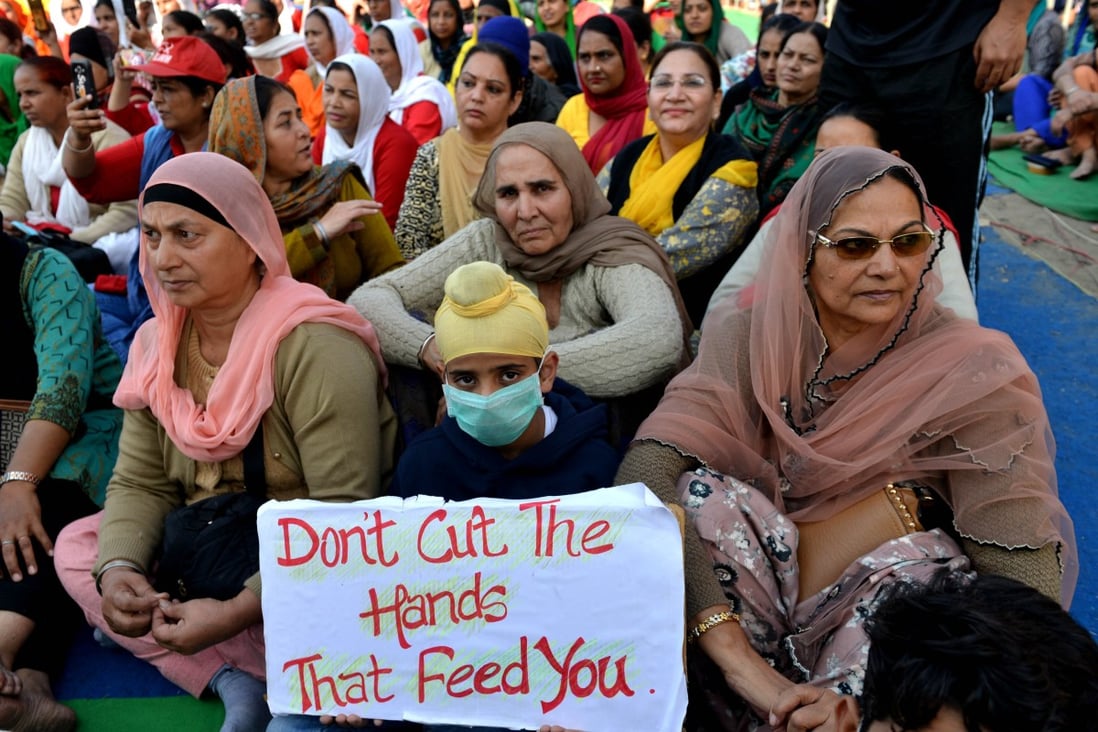
At India’s massive farmers’ protest, which poses perhaps the first significant challenge to Prime Minister Narendra Modi’s government, two things are in abundant supply: determination and food.
If an army marches on its stomach, this one is set to have a lot of staying power. Farmers and volunteers chop mountains of onions, cauliflower, and potatoes every day for the hot lunch and dinner. Snacks are another herculean effort.
Tents are full of sacks and carton boxes of produce. Every few metres, someone is stirring a huge cauldron of food or a vat of tea and handing out biscuits and snacks.
Whenever there is a crisis, a prolonged protest, riots, or a natural disaster, Sikhs are known for getting to the spot and organising meals. This time it is their own hour of need as they take on Modi over his farm reforms.
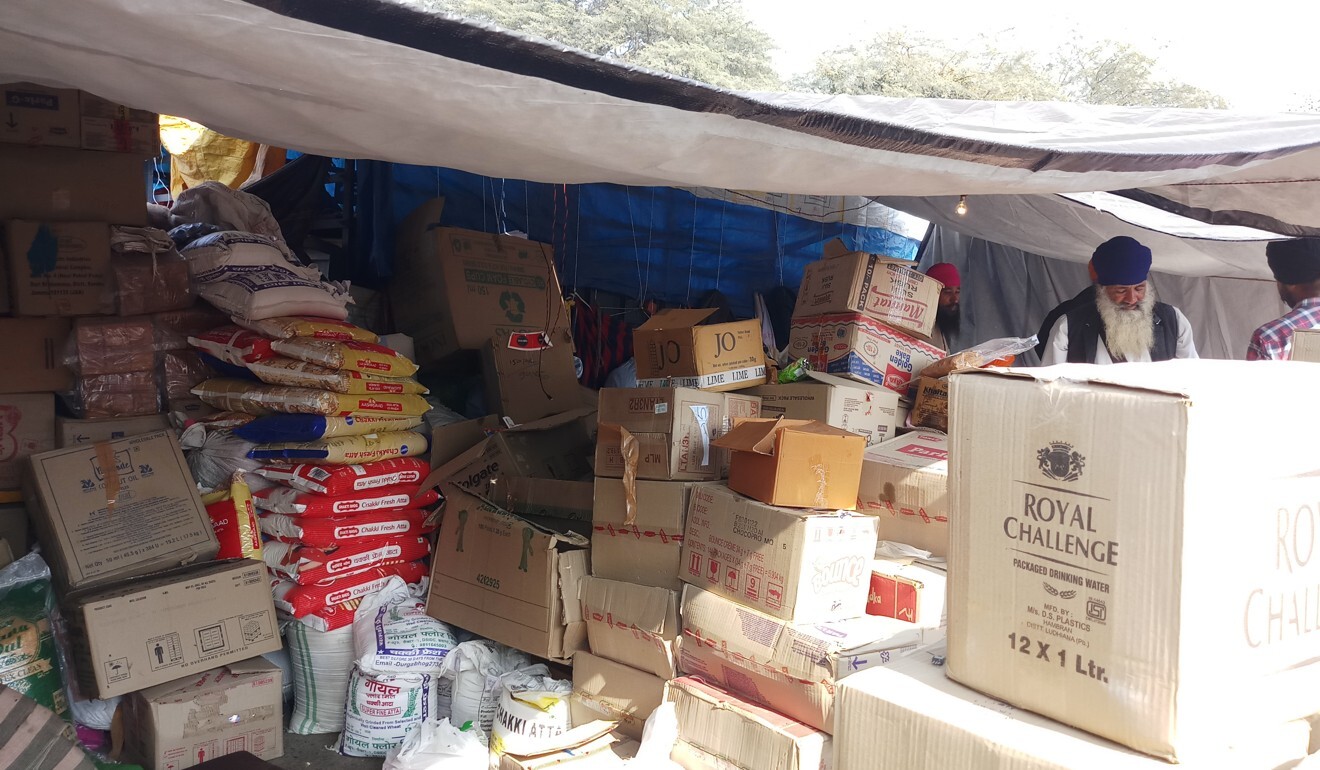
Tens of thousands of farmers, mainly Sikhs from the northern Punjab and Haryana states, have since November 27 been camped at three sites near the highways that lead into the Indian capital, after their plan to storm into New Delhi in their tractors was thwarted by the government.
At the Singhi site sits a vast camp stretching for several kilometres. “We have enough food here for three months. We can hold out for as long as it takes,” said Amarjit Singh Tomar, a farmer from Hoshiarpur, Punjab.
Some say however, that the food will not last beyond six months. Others reckon it can be replenished to last a year through donations from supporters not only in India but also from the Sikh diaspora in Britain and Canada.
Five rounds of talks with the government have failed. In the most important concession so far, the government capitulated on Wednesday to one of the farmers’ central demands, that the guaranteed price paid by government agents for their wheat and rice crop should be retained.
But still, it did not lead to a breakthrough. The farmers insist on a total repeal of all three new farm laws passed in September by Modi, who in turn insists the laws will modernise agriculture and “liberate” India from archaic laws that prevent farmers from selling their produce to the highest bidder. The reforms will allow farmers to sell directly to private buyers such as supermarket chains, he says.
But the farmers say the reforms will result in “slavery” to big private corporations.
“Initially, the corporations might offer the right price, but if they later choose to slash it or don’t honour their contracts, who do we turn to? We won’t even have the government procurement agencies to sell to,” said Manbir Singh, a farmer from Ludhiana, Punjab.
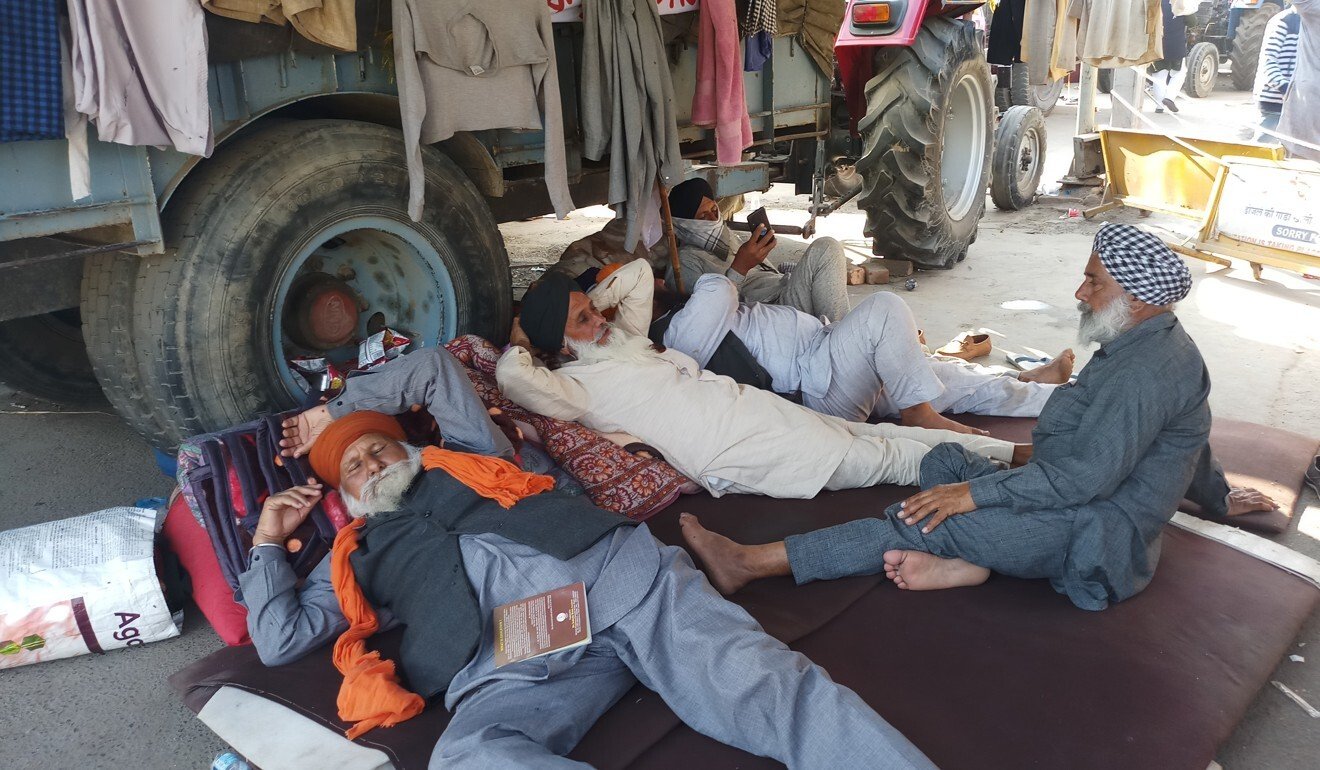
For a makeshift camp, the arrangements in Singhi are working surprisingly well.
Volunteers are operating a small launderette with two washing machines. A small makeshift Sikh temple under an awning has come up for worship. Local shopkeepers allow farmers to use their power points to recharge mobile phones.
Loudspeakers blare as protesters make speeches on a stage. “Do not let politicians hijack our protest. Don’t let any politician enter the camp,” shouted one speaker to the audience.
Doctors have set up desks to function as medical centres for dealing with minor ailments. Some protesters are beginning to fall ill from sleeping outdoors under thin blankets.
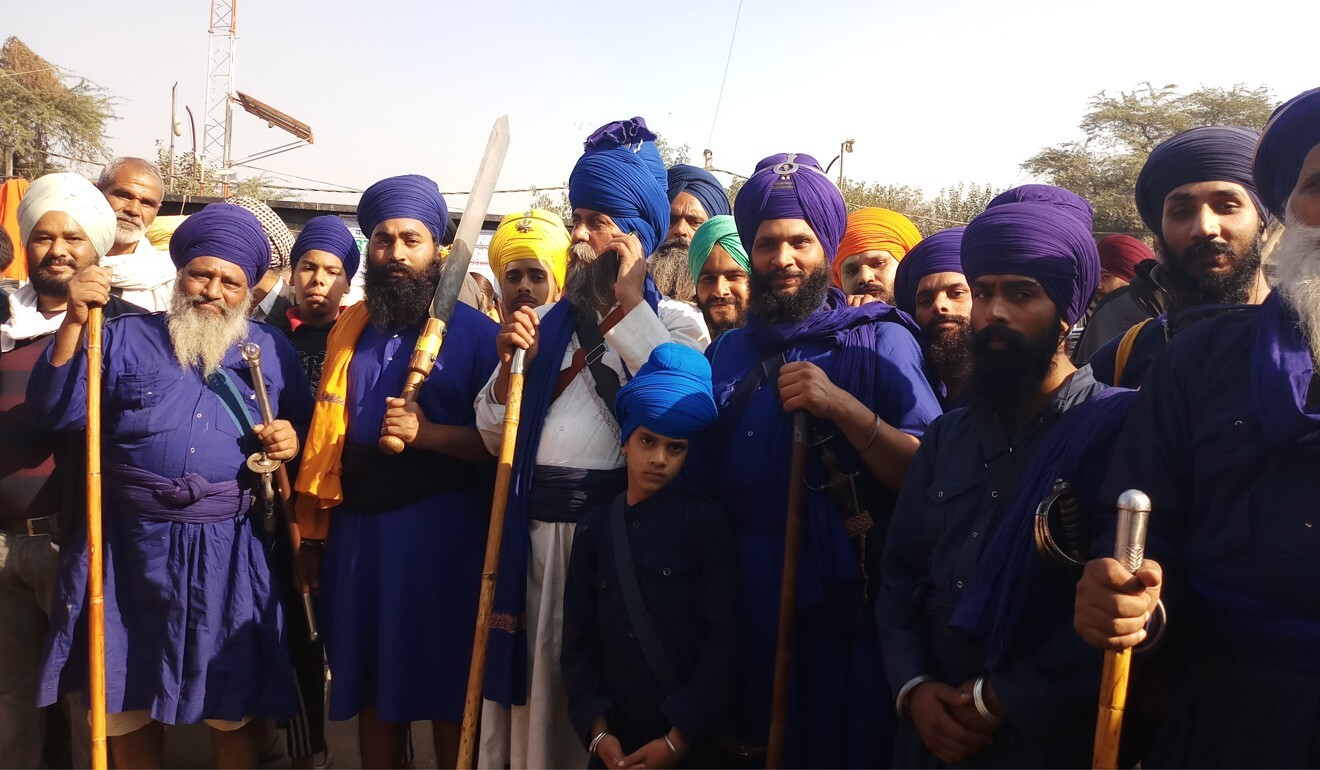
At another site in Ghazipur, locals have even set up a makeshift library of books on farming and social issues.
The tractors and their attached trolleys, normally used for transporting produce, are where some farmers, if they are lucky, sleep at night. Others sleep on the ground. Mats and sheets have been placed around every parked tractor where farmers, many of them quite elderly and frail, sit and talk in the weak winter sunshine.
We are here to make sure there is no violence - Jathedar Gursevak Singh, a Sikh warrior
Also roaming around are groups of “nihangs”, traditional Sikh warriors known for their martial prowess.
“We are here to make sure there is no violence. This is a peaceful protest. The entire community feels its rights are being denied so we had to come,” said Jathedar Gursevak Singh from Chandigarh, clad in a navy blue outfit with a tall turban and a kirpan (dagger) around his waist.
Some families are taking turns to attend the protests, with a few men going back home and other relatives taking their place. “Although most of us have finished harvesting our crop, we need to get the land ready for the next crop. Our women are looking after the farms but there is a limit to what they can do,” said Sukhraj Singh.
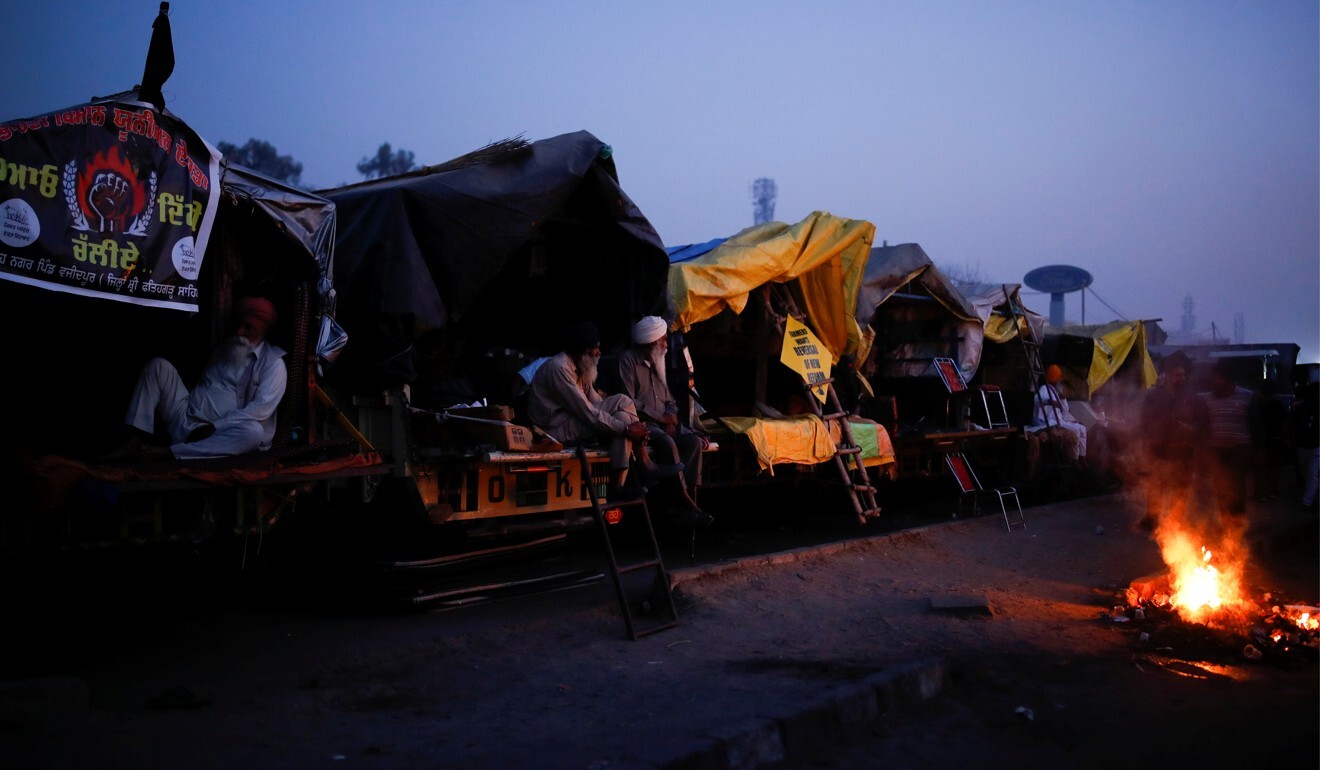
The days ahead will get harder. The nighttime temperatures will fall further. The camp site, despite teenage volunteers from the local Sikh temple clearing up the rubbish, is beginning to look messy. The toilets are inadequate. Pools of stagnant water are appearing.
But with the farmers bent on a total repeal of all three laws, the stalemate looks set to continue. In their latest statement, the farmers said if their demands were not met, they would obstruct a major highway. Trucks carrying food supplies to the capital would be blocked.
“If Modi had consulted us, we wouldn’t be here. He thought we were uneducated and he could push us around,” said Jaswinder Pal Singh. “But we are not budging. We will remain peaceful, but we are not going until the laws are rolled back.”







